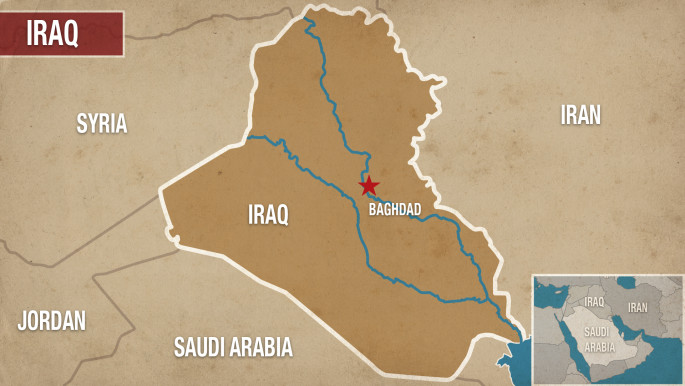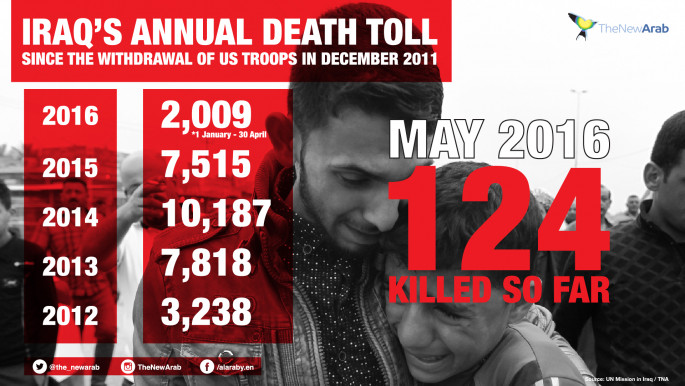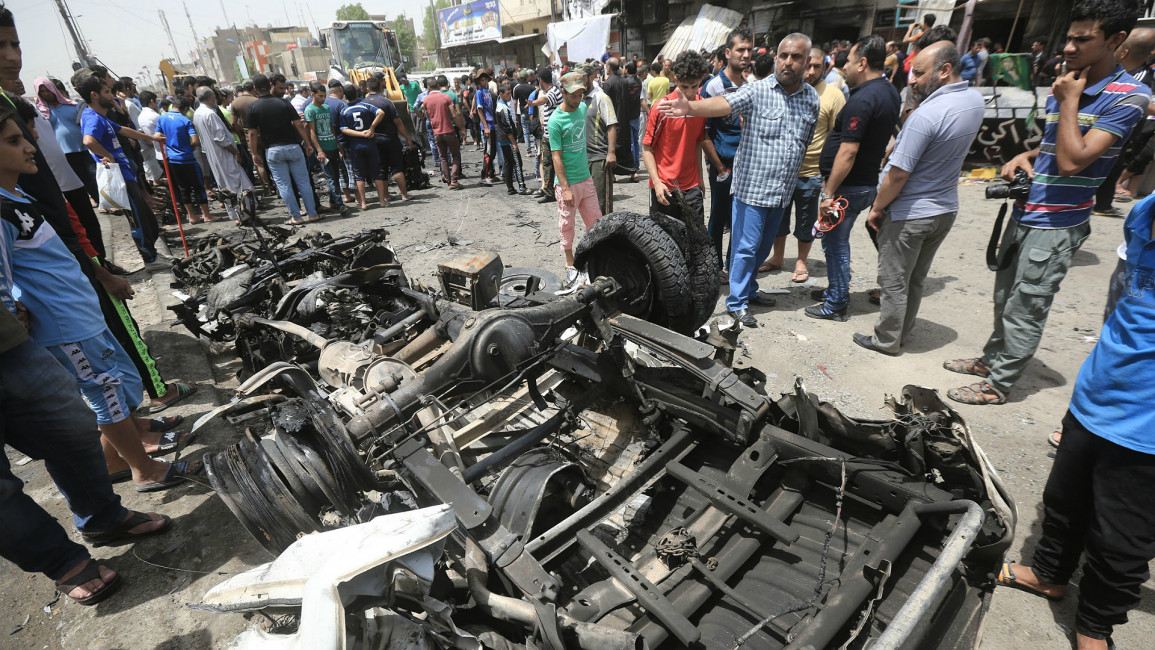Suicide bombers target western Baghdad police station, killing six
Two suicide bombers targetted a police station in Abu Ghraib during a gathering of officers in the inner courtyard of the station, killing at least six, including a chief police officer.
The recent wave of violence in Baghdad confirms that Islamic State [IS] group sleeper cells are present in the Iraqi capital, Mohammed Awni, a senior officer, told The New Arab.
"We will have to review our position in light of these developments, as the recent attacks undermine reports that the capital city is clear of IS," Awni said.
The attack comes just a day after 94 people were killed and 165 others wounded in three car bombs, making it the deadliest violence in the Iraqi capital this year.
The worst of the bombings struck the frequently targeted Sadr City area of northern Baghdad, killing 64 people.
 |
Another suicide car bomb attack killed at least 17 people at the entrance to the northwestern neighbourhood of Kadhimiya, home to an important Shia shrine.
US State Department spokeswoman Elizabeth Trudeau condemned the attacks on Wednesday, which were claimed by IS, adding the "cowardly attacks only harden the resolve of Iraqis and the international community to utterly destroy this group and its warped ideology".
The attacks come at a time of turmoil and deadlock in Iraq's government and parliament.
Baghdad's political crisis
The months-old political crisis has led to repeated mass demonstrations that required a huge security deployment and hampered government action at a time when Iraq is still battling militants on several fronts.
Security forces are currently engaged in large-scale military operations in the provinces of Anbar and Nineveh as they close in on Fallujah and Mosul, the two major IS hubs remaining in the country.
 |
Security forces are currently engaged in large-scale military operations in the provinces of Anbar and Nineveh as they close in on Fallujah and Mosul |  |
The US and the UN have warned the political impasse could undermine the fight against IS.
Iraqi Prime Minister Haider al-Abadi has sought to replace the cabinet of party-affiliated ministers with a government of technocrats, a move opposed by powerful parties that rely on control of ministries for patronage and funds.
Angry demonstrators last month broke into central Baghdad's fortified Green Zone and stormed parliament after lawmakers again failed to approve new ministers.
While the protesters withdrew the following day, parliament has still yet to hold another session.
 |
Agencies contributed to this report



